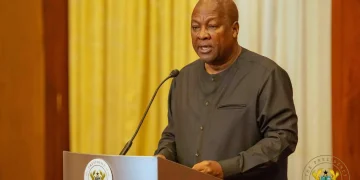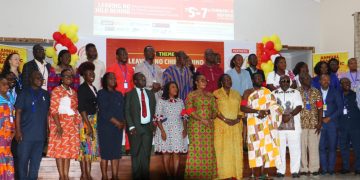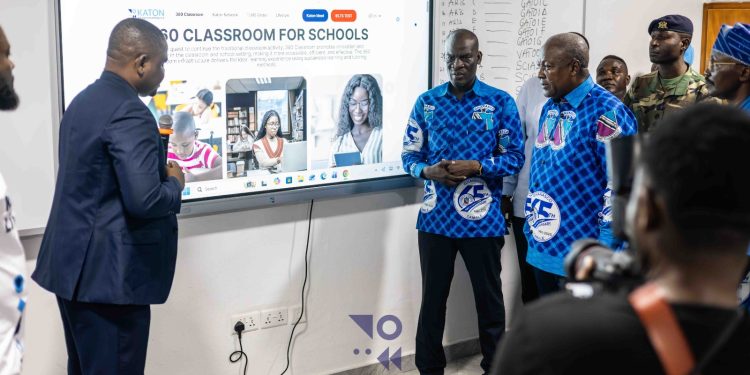Under a bright Tamale sky, students and teachers at Ghana Senior High School (Ghanasco) clustered around a newly commissioned Katon360 Smart Classroom Block, an initiative delivered in partnership with Katon360.
The initiative forms part of the Mahama government’s commitment to ensure that Ghanaian students develop a strong interest in learning through interactive digital tools, and emerge fully prepared for the competitive demands of the 21st century.
But the moment that stills conversations and changes posture came early: President John Dramani Mahama’s pledge to dismantle a system many pupils feel defines their worth.
“The school placement system has run into problems because schools are categorised in three categories,” Mahama told the gathering. “One is Category A, the second is Category B, and the third is Category C. About half of student populations in secondary schools are in what are called Category C schools. And most people don’t want to go to Category C schools.”
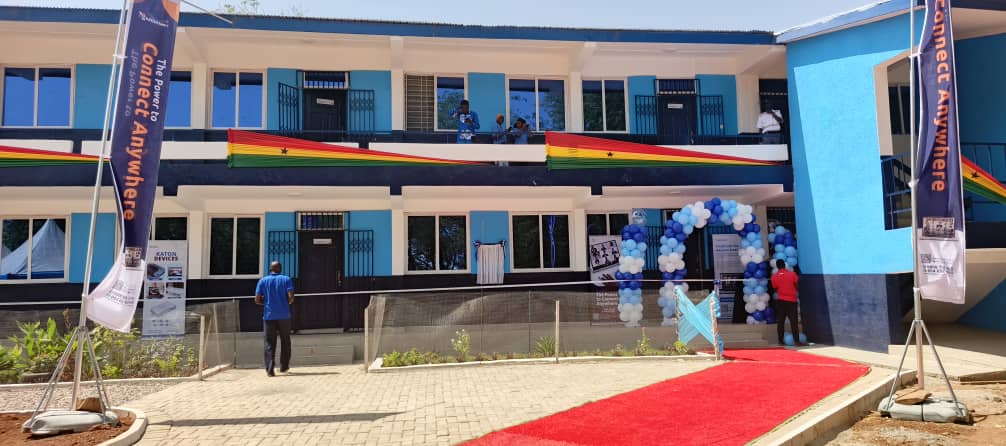
For learners who have lived that stigma, his words were more than policy they were an answer to a small daily shame.
“We’re going to build science laboratories, we’re going to build dormitories, we’re going to build classroom blocks, we’re going to do STEM laboratories for them, so that we can expand those Category C schools to either Category B or Category A,” he said, announcing concrete steps. “And so, as the Finance Minister said in the budget, we’re selecting the first 30 Category C schools.”
Teachers who have long juggled large classes and limited equipment watched quietly as Mahama described plans they had asked for, for years. He also raised the unfinished projects many remember: “We’ve identified 30 of the E-blocks that I started that were abandoned. And we’re going to put the resources in and finish all the 30 E-blocks, so that we can expand the space in secondary schools for our children.”
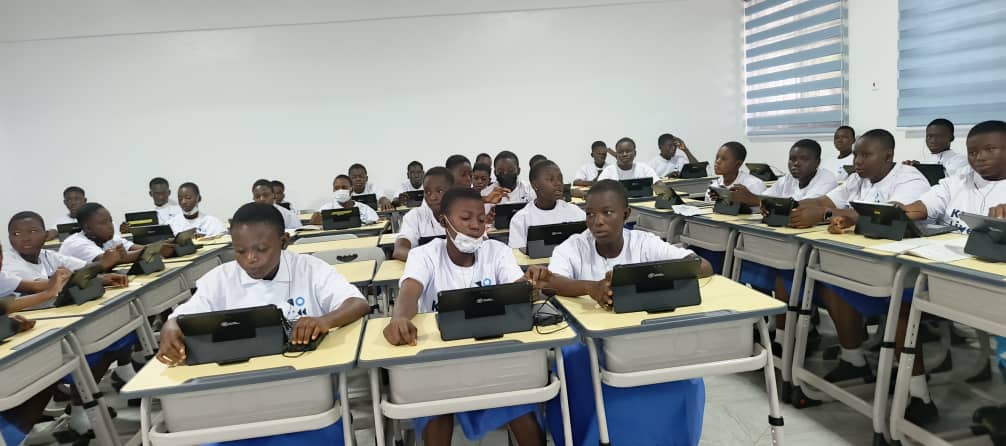
Those pledges were folded into a larger, personal riff on education’s hard edges and the dignity of a properly funded school life. “One of the major setbacks of free SHS was the fact that it didn’t have dedicated funding,” he said bluntly.
“And so our headmasters like Headmaster Douglas and his staff were always frustrated because the money to run the schools always came late, and so they had to turn into beggars to go around begging for food for children. And I remember in many instances, our northern schools would send an appeal to all old students to bring food to feed our students.”
He then established a clear contrast with the present: “That is a thing of the past now. Now, because of the dedicated funding for free SHS, we’re able to release the money to the schools and to the buffer stock company on time, so that children can be fed nutritious meals.”
In a practical expansion of that idea — a plan that drew laughter, then thoughtful nods — Mahama described a policy to make schools partly self-reliant in feeding students. “And that is a policy where secondary schools will have a poultry farm and a livestock farm,” he said. “And so, Ghanasco will be one of the schools selected. We’ll establish a poultry farm here, and a livestock farm, so that you don’t have to go to the market to buy your meat. You take your meat from your own farm.”
He left no pretense in the instructions: “And so, when we have the farm, you have to be volunteering to go and feed the chickens and the sheep and goats. And again, Headmaster will have no excuse when you go to the dining hall and there’s no meat in your food.”
Mahama’s remarks on infrastructure and feeding reverberated into promises specific to Ghanasco. “And as was said by the Education Minister, next year we are provisioning for Ghanasco a new school bus, and then a new classroom block, a new dormitory block for boys, and a new science laboratory. And then the best one, a 5,000-seater auditorium. One of the biggest you will ever find in this country, a 5,000-seater auditorium.”
Those concrete commitments framed the ribbon-cutting that followed for the Katon360 Smart Classroom Block — a bright, solar-powered cluster of rooms furnished with smart boards, tablets and charging cabinets.
“This is a full 21st-century learning experience,” Lawrence Hornovo, Head of Projects for West Africa at Katon360, told the press before the commissioning. “The smart block is equipped with a smart screen, tablets for every student, charging cabinets, and the entire facility is solar powered. Every classroom is air-conditioned and connected to the internet. What we are providing is a robust, comprehensive learning environment that prepares students to compete globally.”
Hornovo addressed parents’ concerns directly: “Parents should not worry. There is a tracker on every device, and all unauthorised sites including social media have been restricted. The system is designed strictly for academic work.”
He also laid out how Katon360 plans to keep the system working: “We have technicians assigned to every district, and users can also register issues on our digital support platform. Every tablet has a one-year warranty, and we replace devices with factory defects at no cost. However, user-caused damage like broken screens must be paid for. Our technicians still handle all repairs and replacements on site.”
Inside a classroom, the effects were already visible. Physics teacher Eric Addai described the classroom tools in the exact terms he used earlier: “The smart board summarises your work. All your materials are uploaded and shared with students before you even get to class. Even when you’re not present, you can upload lessons for them to study. It keeps students attentive, allows for clear demonstrations, and ensures no one is left behind. Our biggest challenge now is internet connectivity, but beyond that, the system is far more efficient than traditional teaching.”
Students agreed. Science student Iman Jeswinde Ismaila Abdul-Fatawu said what many felt: “When I came here, I thought learning would be like JHS, but the Katon360 app has changed everything. With the tablets and virtual access to facilitators, learning has become easier and more enjoyable. We are grateful to the President and the government for giving us this opportunity.”
Source: kumasimail.com





